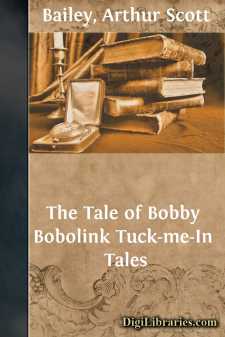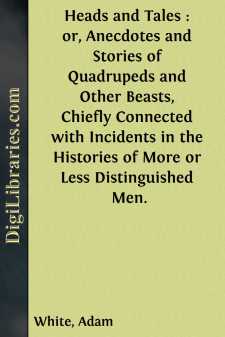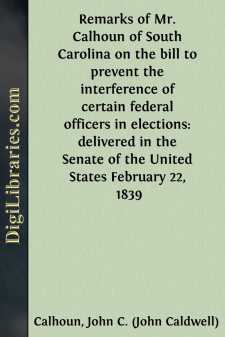Categories
- Antiques & Collectibles 13
- Architecture 36
- Art 48
- Bibles 22
- Biography & Autobiography 813
- Body, Mind & Spirit 142
- Business & Economics 28
- Children's Books 15
- Children's Fiction 12
- Computers 4
- Cooking 94
- Crafts & Hobbies 4
- Drama 346
- Education 46
- Family & Relationships 57
- Fiction 11828
- Games 19
- Gardening 17
- Health & Fitness 34
- History 1377
- House & Home 1
- Humor 147
- Juvenile Fiction 1873
- Juvenile Nonfiction 202
- Language Arts & Disciplines 88
- Law 16
- Literary Collections 686
- Literary Criticism 179
- Mathematics 13
- Medical 41
- Music 40
- Nature 179
- Non-Classifiable 1768
- Performing Arts 7
- Periodicals 1453
- Philosophy 64
- Photography 2
- Poetry 896
- Political Science 203
- Psychology 42
- Reference 154
- Religion 513
- Science 126
- Self-Help 84
- Social Science 81
- Sports & Recreation 34
- Study Aids 3
- Technology & Engineering 59
- Transportation 23
- Travel 463
- True Crime 29
Sort by:
SOMEBODY IS EXPECTED On May Day the feathered folk in Pleasant Valley began to stop, look and listen. They were expecting somebody. "Have you seen him?" Rusty Wren asked Jolly Robin. Jolly Robin said that he hadn't; but he added that he was on the lookout. "Have you heard his song?" little Mr. Chippy inquired eagerly of Mr. Blackbird. "No!" that dusky rascal replied....
more...
CHAPTER I ROOM NO. 317 I laid my papers down upon the broad mahogany counter, and exchanged greetings with the tall frock-coated reception clerk who came smiling towards me. "I should like a single room on the third floor east, about the middle corridor," I said. "Can you manage that for me? 317 I had last time." He shook his head at once. "I am very sorry, Mr. Courage," he...
more...
CHAPTER I. The Prince de Mont-Beliard.—He Agrees to the Propositions Made Him.—TheKing's Note.—Diplomacy of the Chancellor of England.—Letter from theMarquis de Montespan.—The Duchy in the Air.—The Domain of Navarre,Belonging to the Prince de Bouillon, Promised to the Marquise. There was but a small company this year at the Waters of Bourbonne,—to begin with, at any rate; for...
more...
by:
Adam White
MAN. In this collection, like Linnæus, we begin with man as undoubtedly an animal, as opposed to a vegetable or mineral. Like Professor Owen, we are inclined to fancy he is well entitled to separate rank from even the Linnæan order, Primates, and to have more systematic honour conferred on him than what Cuvier allowed him. That great French naturalist placed man in a section separate from his...
more...
Mr. President: At the last session of Congress, it was avowed on all sides that the public debt, as to all practical purposes, was in fact paid, the small surplus remaining being nearly covered by the money in the Treasury and the bonds for duties which had already accrued; but with the arrival of this event our last hope was doomed to be disappointed. After a long session of many months, and the most...
more...
PROSPECTING It was morning, high and clear as Arizona counts weather, and around the little railroad station were gathered a crowd of curious onlookers; seven Indians, three women from nearby shacks—drawn thither by the sight of the great private car that the night express had left on a side track—the usual number of loungers, a swarm of children, besides the station agent who had come out to watch...
more...
CHAPTER I BEAUTIFUL AS THE DAY The house was three miles from the station, but, before the dusty hired hack had rattled along for five minutes, the children began to put their heads out of the carriage window and say, "Aren't we nearly there?" And every time they passed a house, which was not very often, they all said, "Oh, is this it?" But it never was, till they reached the very...
more...
CHAPTER I It was sunrise on the Colorado desert. As the advance guard of dawn emerged from behind the serrated peaks to the east and paused on their snow-encrusted summits before charging down the slopes into the open desert to rout the lingering shadows of the night, a coyote came out of his den in the tumbled malpais at the foot of the range, pointed his nose skyward and voiced his matutinal salute...
more...
by:
Honore de Balzac
CHAPTER I. THE CHALET At the beginning of October, 1829, Monsieur Simon Babylas Latournelle, notary, was walking up from Havre to Ingouville, arm in arm with his son and accompanied by his wife, at whose side the head clerk of the lawyer's office, a little hunchback named Jean Butscha, trotted along like a page. When these four personages (two of whom came the same way every evening) reached the...
more...
by:
A. L. O. E.
CHAPTER I.THE FAMILY OF RATS. My very earliest recollection is of running about in a shed adjoining a large warehouse, somewhere in the neighbourhood of Poplar, and close to the River Thames, which thereabouts is certainly no silver stream. A merry life we led of it in that shed, my seven brothers and I! It was a sort of palace of rubbish, a mansion of odds and ends, where rats might frolic and...
more...











